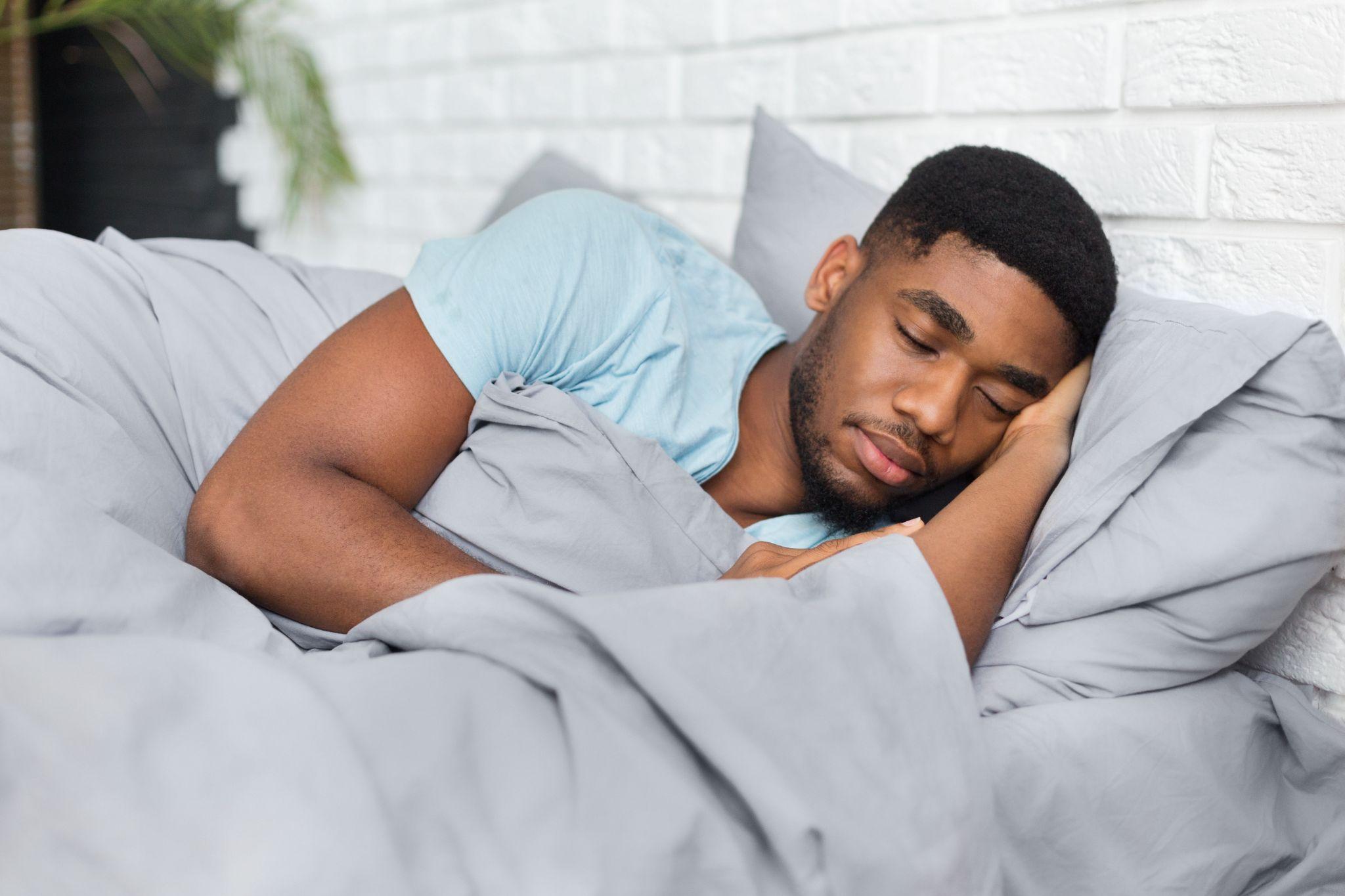On the road to recovering from addiction, every aspect of well-being matters. Most significantly, quality sleep is a pillar of good health, especially in addiction recovery.
Sleep can help heal and restore the body and mind, making it easier to cope with the challenges of recovery. Lumina Recovery wants to inspire you with knowledge on the importance of sleep during this critical time and offer practical tips to improve sleep quality.
The Importance of Sleep in Addiction Recovery
Sleep serves as a foundation for physical and mental health, especially during the challenging journey of addiction recovery. It’s a time when the body and mind can heal and rejuvenate, providing strength for the journey ahead.
Healing and Restoration
Addiction can take a significant toll on the body. Sleep facilitates physical healing by allowing the body and central nervous system to repair itself. During deep sleep, tissue growth and repair occur, vital organs rest, and energy is restored.
Substance abuse can also affect brain function and structure. Sleep helps to restore and rebalance brain chemicals, supports the formation of new neural connections, and enhances cognitive functions such as memory, problem-solving, and decision-making.
Emotional and Psychological Well-Being
Sleep plays a critical role in managing emotions. Disrupted sleep can exacerbate feelings of anger, sadness, or anxiety. Adequate rest helps regulate mood, increasing resilience and reducing the risk of relapse.
Recovery can be a stressful time. Sleep reduces cortisol levels (the stress hormone) and supports the balance of other neurotransmitters, promoting a sense of calm and well-being.
Concentration and Focus
Sleep deprivation can lead to decreased attention, impaired memory, daytime fatigue, and reduced executive function. Getting enough sleep improves concentration, focus, and the ability to learn, which are essential for those in recovery working to rebuild their lives.
Healthy Choices and Behaviors
Well-rested individuals are better equipped to make healthy choices, resist cravings, and avoid triggers. Sleep enhances executive function, which is responsible for planning, impulse control, and adhering to recovery plans.
Sleep strengthens the immune system, making the body more capable of fighting infections and diseases. This is particularly important for individuals in recovery, as their bodies may be more vulnerable after extended periods of substance abuse.
Social Connections
Adequate sleep can improve social skills and emotional intelligence, making it easier to reconnect with loved ones and build new, supportive relationships that are crucial for long-term recovery.
In essence, sleep is not just a passive state but an active process that supports every facet of recovery. It’s a vital ingredient in the recipe for resilience, healing, and growth. Prioritizing sleep is prioritizing recovery itself.
8 Tips for Getting Good Sleep in Addiction Recovery

1. Establish a Regular Sleep Schedule
Be consistent. Regulating your internal clock by going to bed and waking up at the same time every day, including weekends, is important for creating a sleep schedule. This consistency makes it easier to fall asleep and wake up naturally, improving sleep quality over time.
Adjust gradually. If your current sleep schedule is far off your target, adjust it gradually, in 15-minute increments, to ease the transition toward healthy sleep habits.
2. Create a Restful Environment
Optimize your bedroom. Ensure your bedroom is a sanctuary for sleep. Keep it quiet, dark, and at a comfortable temperature. For good sleep hygiene, consider using blackout curtains, eye masks, earplugs, or white noise machines to block out light and noise.
Have comfortable bedding. Invest in a high-quality mattress and pillows that support your body and sleeping style. The right bedding can make a significant difference in your comfort and the quality of your sleep.
Limit bedroom activities. Use your bedroom only for sleep and intimacy. Avoid working, eating, or watching TV in bed to strengthen the mental association between your bedroom and sleep.
3. Mind Your Diet and Exercise
Watch what you eat and drink. Avoid caffeine and nicotine close to bedtime as they can keep you awake. Also, avoid heavy or large meals within a couple of hours of bedtime. If you’re hungry at night, eat a light, healthy snack.
Do regular physical activity. Engage in regular, moderate exercise, but not too close to bedtime. Exercise can help deepen your sleep. However, exercising too close to bedtime may make it harder to fall asleep.
4. Establish a Bedtime Routine
Start winding down. Spend the last hour before bed doing calming activities to help your body recognize it’s time to wind down. This could include reading, taking a warm bath, gentle stretching, or meditation.
Listen to soothing music or sounds. Integrating calming music or nature sounds into your bedtime routine can help relax your mind and ease you into sleep. Choose melodies or sounds that are slow and serene, such as gentle piano music, ocean waves, or soft rain, to create a peaceful atmosphere conducive to sleep.
5. Limit Screen Time
Avoid social media. Scrolling through social media can be stimulating rather than relaxing, keeping your mind engaged and making it harder to fall asleep. Set a specific time to disconnect from social media in the evening to help your mind unwind and prepare for a restful night’s sleep.
Put your devices away. Electronic devices like smartphones, tablets, and computers emit blue light, which can interfere with the body’s natural sleep-wake cycle. Create a habit of putting your phone away at least an hour before bedtime to help your brain prepare for sleep.
6. Seek Professional Help if Needed
Consult a healthcare provider. If you’re experiencing persistent sleep disturbances, it may be helpful to consult with a healthcare provider or a sleep specialist. They can assess for sleep disorders such as insomnia or sleep apnea, which may require specific treatments.
Explore cognitive behavioral therapy for insomnia (CBT-I). CBT-I is a highly effective treatment for insomnia. It involves changing sleep habits and scheduling, as well as misconceptions about sleep and insomnia, without the need for medication.
7. Practice Relaxation Techniques
Manage stress. Stress and anxiety can significantly impact sleep quality. You can try meditation, deep breathing, or light yoga to help reduce stress levels and prepare your mind and body for sleep.
Try mindfulness or guided imagery. Mindfulness meditation and guided imagery can be practiced before bedtime to help calm an active mind and ease into sleep.
8. Stay Positive
Keep a gratitude journal. Writing down things you are grateful for can shift your focus away from stress and anxiety towards positive thoughts, making it easier to relax and fall asleep.
Practice positive affirmations. Positive affirmations before bed can help create a more optimistic mindset, reduce stress, and improve sleep quality.
Improve Sleep During Addiction Recovery With Lumina Recovery
Good sleep is vital in addiction recovery, offering numerous benefits to help heal the body and mind. By establishing a healthy sleep routine and creating an environment conducive to rest, individuals in recovery can significantly improve their sleep quality.
Support from healthcare professionals, alongside these practical tips, can make a significant difference in your recovery journey. Lumina Recovery offers therapy services that can help promote sleep and healing.
Contact our team today to learn more about how we can help you or your loved one.



